On International Women’s Day, here are the glass ceiling jobs that remain in Australian public life
Australian women have occupied some of our highest offices - but many senior jobs have still never been taken by a female. On International Women’s Day, here’s a look at the all-male bastions that remain. Prepare to be shocked.
On the face of it, Australia has a pretty enviable reputation internationally when it comes to women occupying senior roles. We had our first female prime minister in Julia Gillard and our first female Governor-General in Quentin Bryce, and a couple of states are already onto their second female premiers.
We’ve also had women overseeing big banks, editing major newspapers and running TV networks.
GENDER AGENDA: Why diversity initiatives can backfire
EDWINA BARTHOLOMEW: Let’s get the parity started
But scratch a little deeper and it’s clear there are many glass ceilings that have yet to be shattered.
These are the jobs that remain all-male bastions in Australian political life:
GOVERNMENT POSITIONS (ELECTED AND UNELECTED)
Julia Gillard became Australia’s first female Prime Minister in 2010 and held the job until 2013, but many senior roles in Australian politics have never been filled by a woman.
Federal Treasurer
Not one of the 40 federal Treasurers Australia has had since 1901 has been a woman. Helen Coonan got the closest as Assistant Treasurer in the Howard Government in the early 2000s.
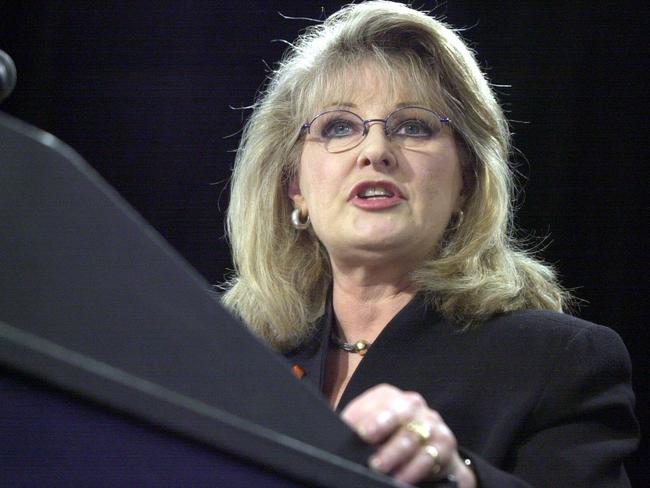
Trade Minister
Australia has had 52 federal trade ministers since 1901. Not one has been a woman. In comparison, half of Ethiopia’s current cabinet ministers are women, including the minister for trade.
Opposition leader
Australia has still never a female opposition leader. Julia Gillard was rolled while she was still in office and replaced again by Kevin Rudd.
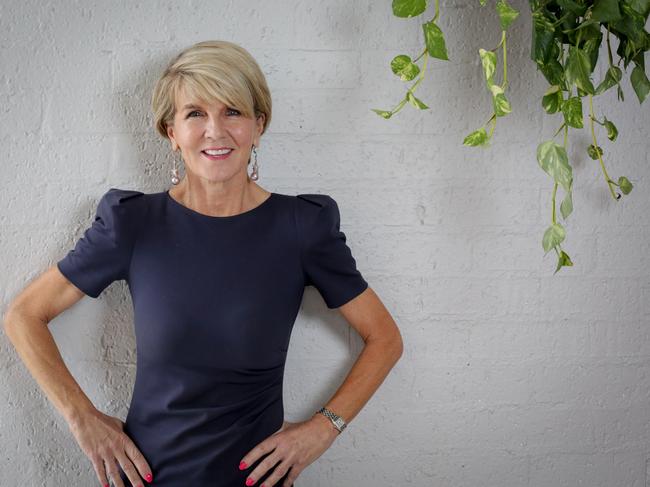
Liberal Party (federal)
Julie Bishop became the first ever woman to formally stand for the leadership of the Liberal Party in 2018 during the leadership spill to oust Malcolm Turnbull. She was ultimately beaten to the post by Scott Morrison after receiving just 11 votes in the first ballot - despite being perceived as the candidate with the widest electoral support.
National Party (federal)
Fiona Nash became the first deputy leader of the National Party in 2016, and has been succeeded by Bridget McKenzie. But a woman has never led the party since it was formed in 1920.
Premier of South Australia
South Australia is the only state that has never been run by a woman. Western Australia was the first state to field a female Premier (Carmen Lawrence in 1990) and since then, all states and territories except South Australia have been led by a woman.
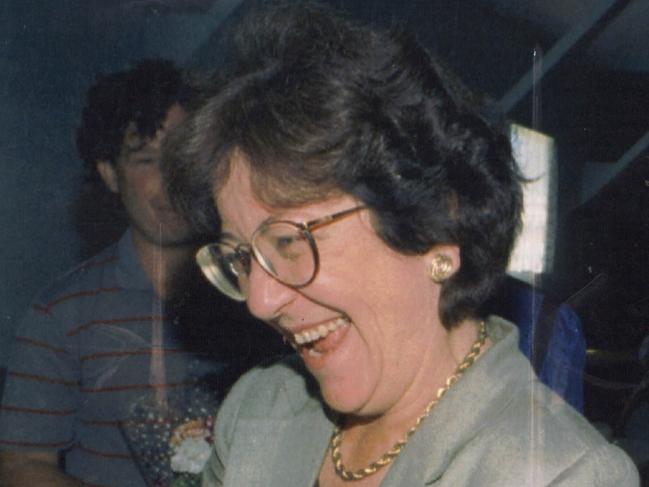
Chief of the Defence Force
Ten people have led Australia’s Defence Force since the post of Chief was created in 1984. None have been women.
Australian Federal Police Commissioner
Seven men have led the AFP as Commissioner since 1979.
ASIO Director-General of Security
Australia’s top spook has been a man since spy agency ASIO was launched in 1949 amid the “reds under the bed” scare.
Reserve Bank of Australia governor
Australia has had 14 Reserve Bank governors since 1912, including under its former incarnation as the Commonwealth Bank of Australia. None have been women.
FEDERAL PARLIAMENTARY SEATS
Of the 150 seats in the House of Representatives, an astonishing 73 of them, or very nearly 50 per cent, have never been held by women.
The most male dominated state in this regard is Victoria: 21 of its 37 federal seats (or 56 per cent) have never been won by women of any political party.
Even more astounding: of those 21 seats that have always been held by men, fully one third - seven seats - date back to Federation, meaning those voters have elected male MPs only for 118 years, and counting.
Those seats of shame in Victoria are Corio, Flinders, Gippsland, Kooyong, Melbourne, Melbourne Ports and Wannon.
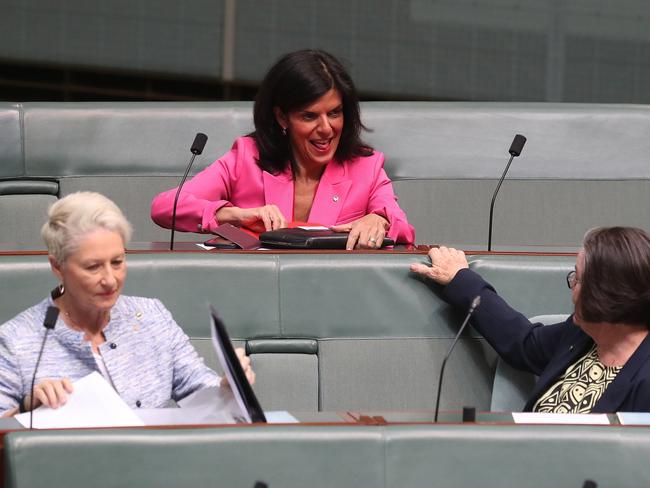
Queensland does not fare too much better, with 15 of its 30 House of Reps seats (50 per cent) only ever being represented by men, and four seats (Kennedy, Maranoa, Moreton and Wide Bay) being exclusively held by men since 1901.
Of all the states, Western Australia has sent the greatest proportion of female MPs to Canberra, with men solely holding on to just five of the state’s 16 electorates (or 31 per cent).
New South Wales holds the most seats of any state, with 47, and nearly half of them have been locked up by men (23 seats, or a total of 48 per cent). NSW is also an offender in terms of seats that have been held by men since Federation, with a total of six, being Cowper, Eden-Monaro, Hume, Hunter, New England and North Sydney. (That total would have been seven if Kerryn Phelps had not claimed the seat of Wentworth in a by-election late last year.)
South Australia currently holds 11 seats in the House of Reps, and five of them (45 per cent) have only ever been held by men, while two of Tasmania’s five seats (40 per cent) hold the same dubious distinction.
The Australian Captial Territory and Northern Territory both have two seats in the lower house of our federal parliament, and in both cases, one of those seats has only ever been held by a man.
SCROLL DOWN FOR THE FULL LIST OF SEATS NEVER HELD BY WOMEN
SPORTING WORLD
Executive-level roles at sporting codes in Australia have been traditionally dominated by men but women are smashing the glass ceiling.
This includes in top positions at Tennis Australia, which has a female chief executive, and Basketball Australia, where three out of seven board roles are held by women.
However, in some Australian sporting codes, the glass ceiling is well and truly still in place.
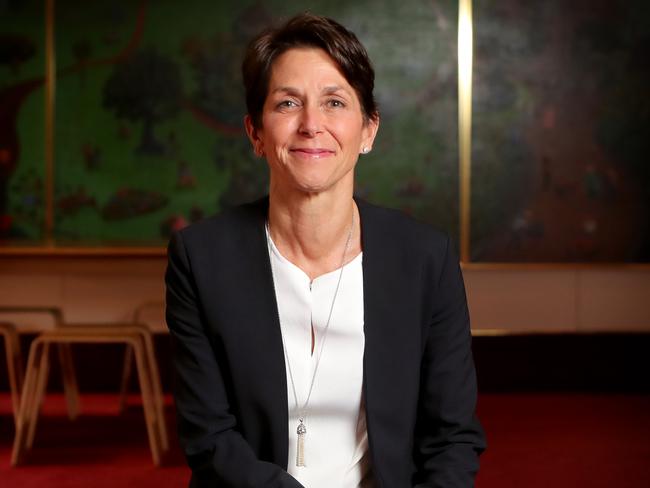
Australian Olympic Committee president
Six people have led the Australian Olympic Committee since 1920 and none have been women.
AFL and NRL clubs
There has never been a female coach of any men’s AFL or NRL club - ever. Not even a senior-level assistant coach. Some clubs have had female CEOs from time to time, including Tain Drinkwater, who is currently the chief executive of the Brisbane Broncos.
Cricket Australia CEO
Cricket Australia has never had a female CEO. Last year, WACA chief executive Christina Matthews implied Cricket Australia was not ready to have a woman in the role after she missed out on the top job.
“I got taken seriously because after it was all over, I got a call from a couple of board members to kind of compliment me and say the impression I made on them and that’s always nice but it’s an institution, it’s not easy to change an institution,” Ms Matthews said in December, according to an interview with Nine Entertainment.
FILM AND TELEVISION INDUSTRY
The Australian film and TV business has long held a reputation as a male-dominated industry and in 2019, equality for women is still a far-off dream.
Our TV networks are still run by men, in the majority.
Of Seven West Media’s eleven directors, just two are women.
The gender-balance is slightly better at Nine Entertainment and Ten. Both companies show women representing three out of seven positions on the board of directors.
SBS has four women on a board of nine directors while the ABC is the only station to favour women at the top, with women reigning supreme in five positions on a board of nine, led by newly instated chair, Ita Buttrose.
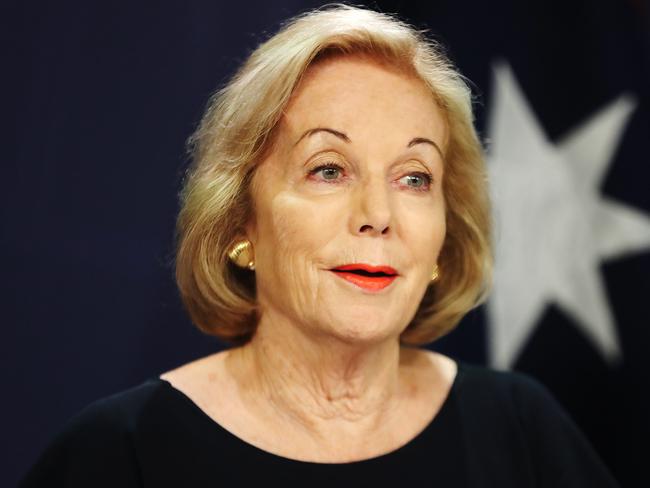
But according to WIFT Australia chair Katrina Irawati, proactive and positive change is possible.
“We can be a shining light to other industries,” said Irawati.
“Imagine if our community turned this around in a way that no one else has done. Imagine if the telecommunications industry, the mining industry, the hospitality industry could say, “Let’s do what the screen industry is doing.” This is possible.
MUSIC INDUSTRY
The Australian music community has been forced to reckon with its gender inequalities across every area from festival line-ups and safe spaces at gigs to industry boards.
ARIA, which represents the record labels, had no women on its board until this year when it made sweeping changes to its constitution to include four women directors - Libby Blakey, Business Affair Director at Warner Music Australia; Karen Don, Senior Vice President, Legal and Business Affairs, Australia and New Zealand at Universal Music Australia; Sophie McArthur, General Manager, Digital & Business Development Australia, New Zealand & Asia at Sony Music Entertainment; and Natalie Waller, Head of ABC Music & Events.
While a giant leap forward in a male-dominated industry, there are still no women at the helm of a major record label in Australia.
The annual Power 50 list published by themusic.com.au this week had 19 women on its list.
TERTIARY EDUCATION SECTOR
Despite a woman leading the Group of Eight – the company associated with Australia’s most prestigious universities – several of the tertiary institutions have never had females in their top spots.
Australian National University has never had a woman as its chancellor or vice-chancellor, nor has the University of New South Wales. The University of Queensland hasn’t either, aside from brief appearances in temporary acting roles.
The University of Melbourne and the University of Sydney have both had women in chancellor roles but never vice-chancellor roles, while the University of Western Australia and Monash University have never had females in the top spot, but they have been second in charge.
The University of Adelaide is the only university to have had women in both roles.
ASX COMPANIES
According to recent data, women occupied 29.7 per cent of positions on boards of ASX 200 companies.
This is a big jump from 2009, when just 8.3 per cent of board positions were filled by women, but there are still three companies on the ASX 200 that do not have any women on their boards.
Banks
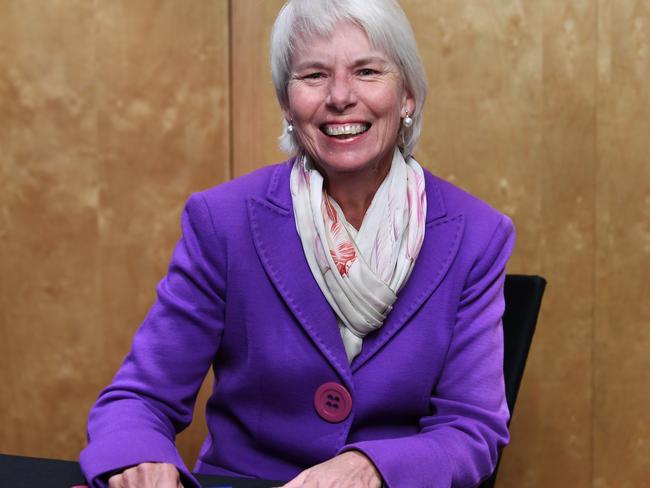
Gail Kelly remains the only woman to head one of Australia’s big banks, helming Westpac between 2008 and 2015. While women have attained senior positions at Commonwealth Bank, the ANZ, the National Australia Bank and Macquarie, none have yet made it to the most senior roles.
Wesfarmers
Australia’s biggest employer - which includes Bunnings, Officeworks, Kmart and Target to name a few - has plenty of women on its leadership team, but has never had a female chairman or chief executive in its 100+ year history.
About a quarter of the transport, postal and warehousing industry are women, according to 2017 data, but only seven per cent of CEOs in this sector are female.
Australia Post clearly goes against this curve with Christine Holgate in the CEO chair since 2017 and four other women and three men on the executive board.
Qantas has been chaired by men since it was established in the 1920s. In 2007 latest chairman Leigh Clifford took the role and a year later Alan Joyce became CEO. The company has four women on its top management team compared to eight men.
HOUSE OF REPRESENTATIVES SEATS NEVER HELD BY WOMEN
NEW SOUTH WALES (23 OF 47 SEATS)
Banks
Berowra
Blaxland
Bradfield
Calare
Chifley
Cook
Cowper *
Eden-Monaro *
Hume *
Hunter *
Kingsford Smith
Lyne
Macarthur
McMahon
Mitchell
New England *
North Sydney *
Parkes
Reid
Warringah
Watson
Whitlam
VICTORIA (21 OF 37 SEATS)
Aston
Bruce
Casey
Corio *
Deakin
Dunkley
Flinders *
Gippsland *
Goldstein
Gorton
Holt
Kooyong *
Mallee
Maribyrnong
McMillan
Melbourne *
Melbourne Ports *
Menzies
Scullin
Wannon *
Wills
QUEENSLAND (15 OF 30 SEATS)
Blair
Bowman
Fadden
Fairfax
Fisher
Flynn
Groom
Hinkler
Kennedy *
Leichhardt
Maranoa *
Moreton *
Rankin
Wide Bay *
Wright
WESTERN AUSTRALIA (5 of 16 seats)
Burt
Moore
O’Connor
Swan
Tangney
SOUTH AUSTRALIA (5 of 11 seats)
Barker
Grey
Port Adelaide
Sturt
Wakefield
TASMANIA (2 of 5 seats)
Denison
Lyons
AUSTRALIAN CAPITAL TERRITORY (1 of 2 seats)
Fenner
NORTHERN TERRITORY (1 of 2 seats)
Lingiari
* Denotes a seat that dates back to Federation, 1901
Originally published as On International Women’s Day, here are the glass ceiling jobs that remain in Australian public life


